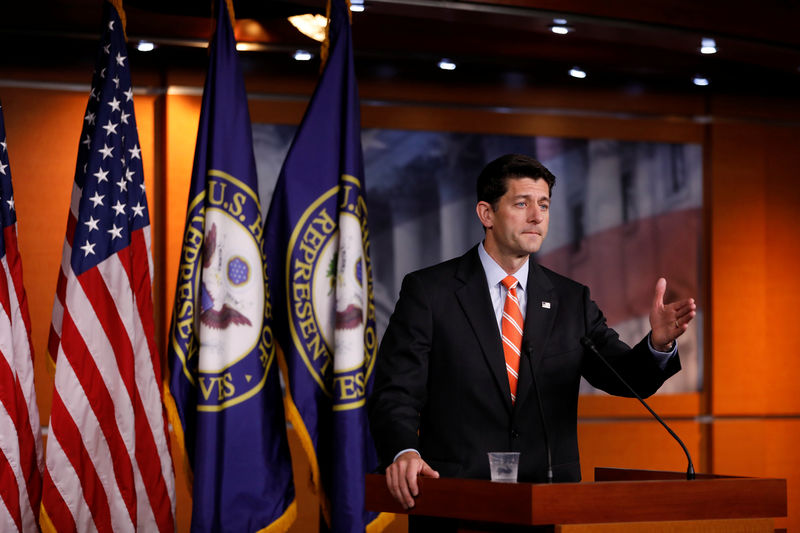By Patricia Zengerle
WASHINGTON (Reuters) - U.S. House of Representatives Speaker Paul Ryan on Thursday urged President Donald Trump's eldest son to testify to a congressional committee about alleged links between Trump's team and Russia in the 2016 presidential election campaign.
"I think any witness who's been asked to testify in Congress should do that," Ryan said at a news conference.
Senate Judiciary Committee Chairman Charles Grassley, a Republican, plans to send a letter on Thursday to Donald Trump Jr. to ask him to testify before his committee in a public session, CNN reported.
If he appeared before the panel, Trump's son would be the highest member of the Republican president's inner circle of relatives and White House aides to testify in Congress about the Russia allegations.
Accusations that Moscow interfered in the election and colluded with the Trump campaign have dominated Trump's first months in office. Russia denies meddling in the campaign, and Trump says there was no collusion.
Trump Jr. disclosed this week that he had met with a Russian lawyer last year who was said to be offering damaging information on Democratic rival Hillary Clinton.
Trump Jr. eagerly agreed to meet the lawyer, who he was told was part of Moscow's official support for his father's campaign, according to emails the son released this week.
The emails were the most concrete evidence that Trump's campaign might have been willing to accept Russian help to win the election, a subject that has prompted investigations by the U.S. Justice Department and Congress.
Trump said in Paris on Thursday that the lawyer, Natalia Veselnitskaya, was a private attorney and not a Russian government lawyer, and that nothing of substance came of the meeting.
"My son is a wonderful young man. He took a meeting with a Russian lawyer, not a government lawyer but a Russian lawyer. It was a short meeting. It was a meeting that went very, very quickly, very fast," he said at a joint news conference with French President Emmanuel Macron.

U.S intelligence agencies said earlier this year that Russia sought to help Trump win the election by hacking private emails from Democratic Party officials and disseminating false information online.